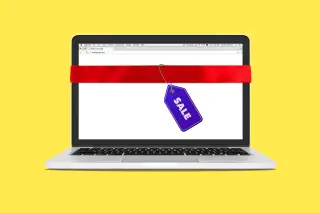Congress Is on the Verge of Repealing Major Internet Privacy Rules. Here’s What You Should Know

House Republicans are expected to vote on Tuesday to repeal an Obama-era rule that required Internet providers to get customers' permission before sharing their personal information and browsing history.
The U.S. Senate voted along party lines 50-48 last week to approve a Republican-backed bill repealing regulations passed in October 2016 to protect Internet users' privacy. A House vote on Tuesday is expected to also favor a repeal of the rule, which is entitled "Protecting the Privacy of Customers of Broadband and Other Telecommunications Services."
Among other things, the rule requires Internet providers like Comcast and Verizon to get the permission of customers before their confidential information is shared or used in any way. If a repeal is successful and President Trump signs the bill as expected, the consequences for Internet users are fairly simple. As The Verge summed up:
Comcast, AT&T, and Charter will be free to sell your personal information to the highest bidder without your permission — and no one will be able to protect you.
Supporters of a repeal—which, unsurprisingly including big players in the broadband business—argue that it's unfair to place such tough restrictions on Internet providers. After all, they point out, sites like Google and Facebook are basically free to use customer data however they see fit.
But advocates for privacy and consumer rights note that there is no fee to use Google and Facebook, and that customers can turn to other search engines or social media if they don't like how their data is being used. Internet providers, on the other hand, charge for their services, and enjoy virtual monopolies in many parts of the country, leaving many customers with no other choice except to pay up or not have Internet access at all.